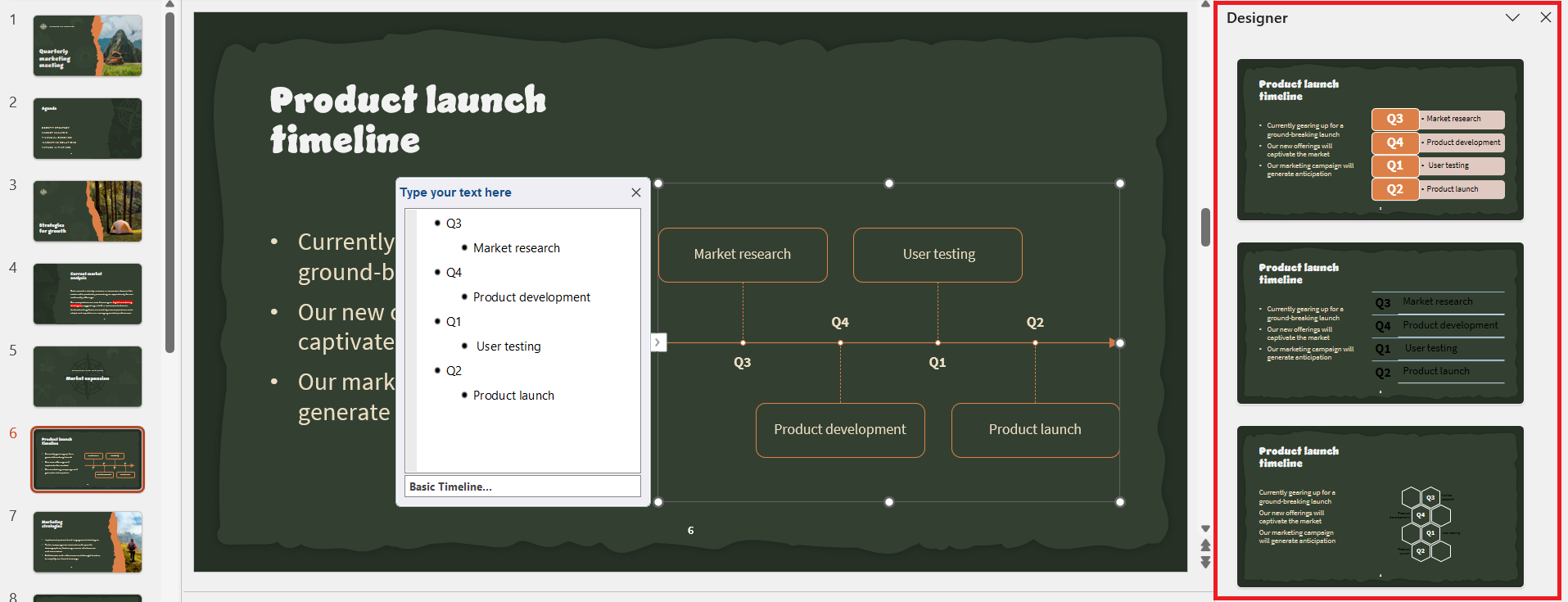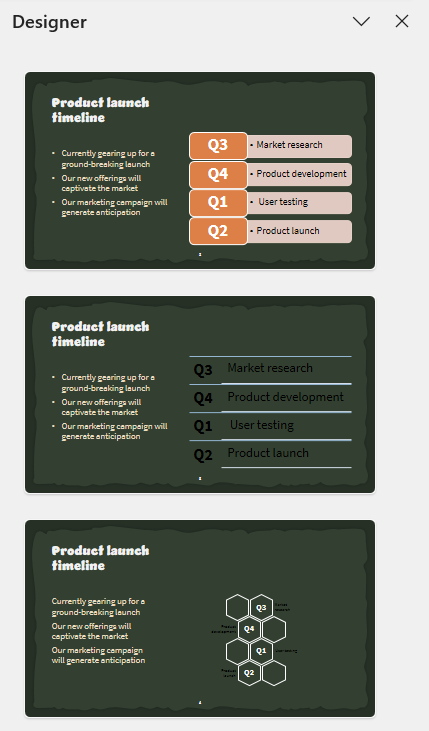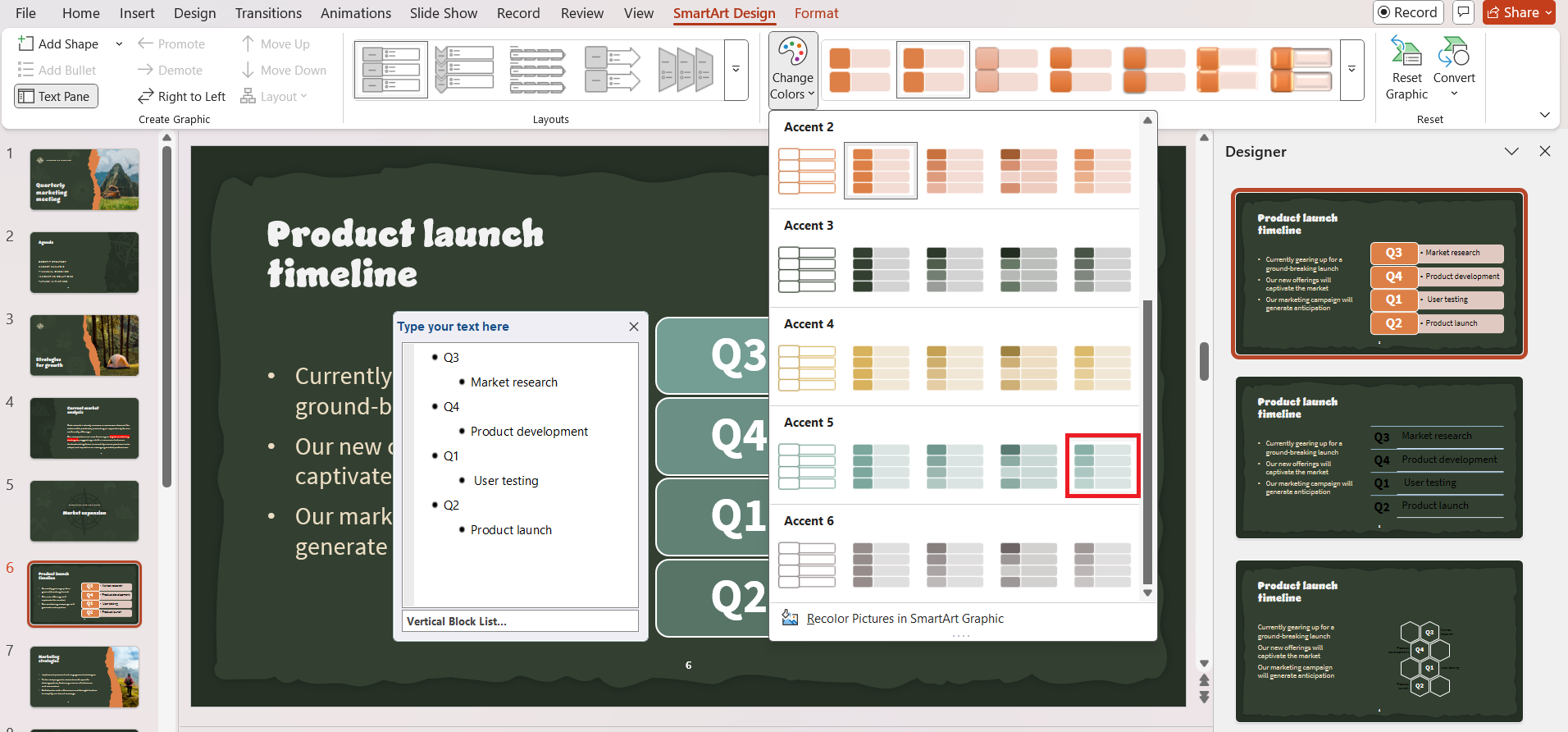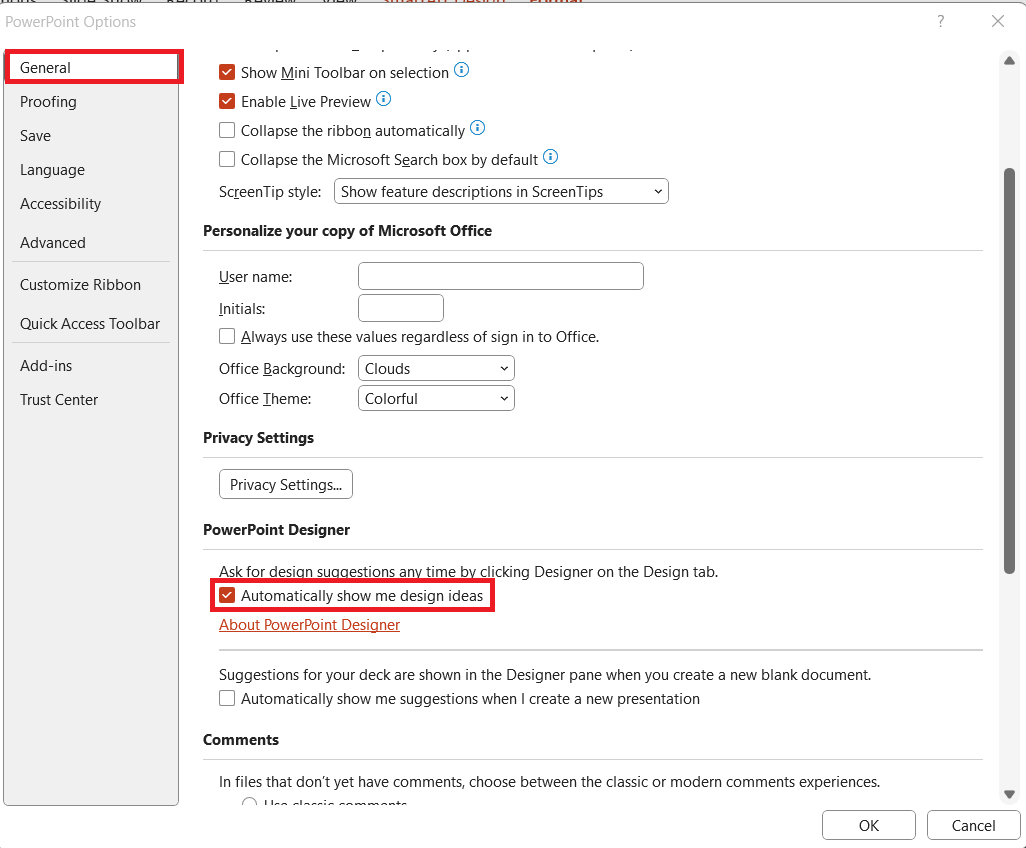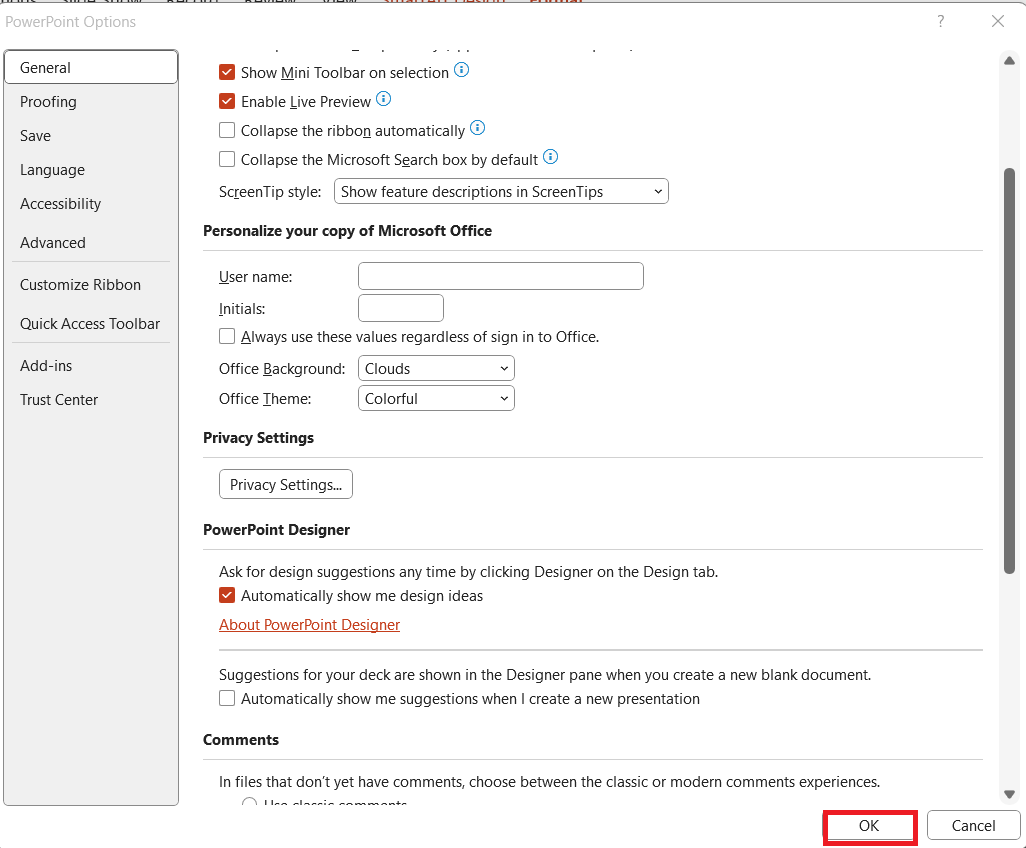Creating a visually stunning and professional presentation can feel like a daunting task, but PowerPoint Designer has completely transformed the way I approach my slides. If you’ve ever struggled with arranging images, choosing the right fonts, or ensuring a cohesive design, you’re in for a treat. Let me take you through how this incredible tool works and how it can elevate your Microsoft presentations.
Key Takeaways:
- PowerPoint Designer provides instant, professional design suggestions for visually appealing presentations.
- Accessing and enabling Designer is simple, making it beginner-friendly and efficient for all users.
- Fine-tune automatic design suggestions to align with branding or personal preferences.
- Resolve common issues by ensuring proper settings, adding content, or updating permissions.
- PowerPoint Designer saves hours of manual effort while producing polished, professional slides.
Table of Contents
Introduction to PowerPoint Designer
Unlocking Creativity with PowerPoint Designer
Imagine harnessing a tool that instantly revamps your presentations, providing a plethora of design ideas at your fingertips—that’s the magic of PowerPoint Designer. It’s like having a personal graphic designer embedded within PowerPoint, eagerly waiting to transform our slides from mundane to magnificent.
This feature nudges us to push the boundaries of creativity by offering design suggestions that we might not have envisioned on our own.
Navigating the Basics of PowerPoint Designer
To get started, it’s essential to understand how PowerPoint Designer works. It’s a built-in functionality that analyzes the content of our slides and provides us with a variety of design templates to choose from. When we insert images, text, or bullet points, the Designer panel springs into action.
Accessing it is a breeze; all we need to do is click on a design element, then navigate to the ‘Design’ tab and select ‘Designer.’
It’s this straightforward flow that allows us to rapidly preview and apply professional layouts to our slides, ensuring that even those of us without a strong design background can create visually appealing presentations.
In practice, unlocking the full potential of PowerPoint Designer is simply a matter of adding content to our slides and remaining open to the variety of layouts it suggests. Alterations to these suggestions can lead to new iterations, thus provoking a collaborative dance between our input and PowerPoint’s design intelligence.
Mastering PowerPoint Designer Techniques
Fine-Tuning Automatic Design Suggestions
While PowerPoint Designer serves up impressive design suggestions, there’s room for us to tailor these to our unique needs. Sometimes, the AI-generated options might not perfectly align with our vision or the messaging we wish to convey. That’s where fine-tuning comes into play. We can sift through the automatic design suggestions, selecting the one closest to our desired outcome. From there, we are empowered to make minor adjustments.
For instance, if a layout suggestion offers a compelling structure but the color scheme doesn’t match our brand, we can apply the layout and then manually adjust the colors.
Alternatively, if the suggested iconography isn’t quite right, we can replace or remove the icons.
It’s these slight modifications that convert a good design into a tailor-made presentation that resonates with our audience.
Fine-tuning is all about striking a balance between embracing AI assistance and maintaining our unique touch to ensure our message is not just seen but felt.
Diving Deeper into Manual Design Adjustments
Beyond the ease and speed of automatic suggestions, we often crave a deeper level of customization for our presentations. Diving deeper into manual design adjustments gives us this control.
For those intricate tweaks and specific branding requirements that automatic suggestions can’t always accommodate, manual adjustments are invaluable. We have the liberty to manipulate slide elements to precise specifications — align text, scale images, curate fonts, and refine color palettes — all with a few clicks and drags.
Engaging in manual refinement also educates us on design principles. As we shift elements around and modify aspects such as balance and contrast, we inherently learn about what makes a slide aesthetically pleasing and functionally clear. This hands-on approach ensures that every pixel on the slide serves a purpose and supports our overall narrative.
Why I Love Using PowerPoint Designer
Here’s why I’m such a big fan of this feature:
- Saves Time: I no longer spend hours trying to align elements or create layouts from scratch. Designer does it for me in seconds.
- Professional Quality: The suggestions are clean, modern, and look like something out of a high-end marketing pitch.
- User-Friendly: I don’t need to be a design expert to create slides that impress my audience.
Optimizing Usage of PowerPoint Designer
Activating and Enabling PowerPoint Design Ideas
Sometimes, we might open PowerPoint only to find that the Design Ideas feature is not working as expected. To reactivate it, we simply need to follow a few steps. First, within PowerPoint, we go to the File menu and click on Options.
Here, we navigate to the General tab and locate the PowerPoint Designer section. Ensuring that both checkboxes for “Automatically show design ideas” and “Automatically show suggestions when I create a new presentation” are selected will re-enable the feature.
After making these changes and clicking OK, Design Ideas become readily available once again when we use PowerPoint.
We can then take advantage of these suggestions by going to the Design tab and selecting Design Ideas. Remember, initially, we might be prompted to give permission for PowerPoint to provide design ideas. This is a crucial step in benefiting from the lively, intelligent design assistance the feature offers.
Troubleshooting: When Designer Doesn’t Work
Sometimes, Designer might not generate suggestions. When that happens, here’s what I do:
- Check My Subscription: Designer is available in Microsoft 365, so I make sure I’m logged in with my account.
- Ensure Connectivity: Since Designer requires an internet connection, I check my network if it’s not responding.
- Simplify the Slide: If my slide is too cluttered, I try breaking it into smaller sections or simplifying the content.
FAQs about PowerPoint Design Ideas
How Do I Enable PowerPoint Designer if It’s Not Visible?
To enable PowerPoint Designer if it’s not visible, open PowerPoint and select ‘File’ > ‘Options.’ In the ‘General’ tab, scroll to ‘PowerPoint Designer’ and check both ‘Automatically show me design ideas’ and ‘Automatically show me suggestions when I create a new presentation.’ Click ‘OK’ to save and re-enable Design Ideas.
Can Design Ideas be Applied to All Slides Simultaneously?
Design Ideas can’t be applied to all slides at once within PowerPoint. However, after fine-tuning one slide with Design Ideas, save the design as a template to efficiently apply that formatting to other slides in the presentation, thus streamlining the design process.
Why Are No Design Ideas Being Generated for My Presentation?
No Design Ideas might be generated due to an unstable internet connection, as PowerPoint Designer requires online access. Also, check that there’s content on your slides and you’re not using custom themes. Make sure no one else is editing if you’re collaborating and confirm that shapes aren’t blocking the feature—if so, try using icons or SmartArt instead.
How Can I Disable PowerPoint Designer if Needed?
To disable PowerPoint Designer, go to PowerPoint Preferences under the PowerPoint menu. Choose ‘General’ under Authoring and Proofing Tools. In the ‘PowerPoint Designer’ section, clear the checkbox for ‘Automatically show me design ideas.’ Click ‘OK’ to turn off the automatic suggestions and save your preferences.
Why don’t I have a designer in PowerPoint?
You might not see the Designer in PowerPoint if you’re not using a version that includes it, such as PowerPoint for Microsoft 365. Ensure you have a Microsoft 365 subscription and your PowerPoint app is updated. Also, Designer requires an internet connection and doesn’t work with custom templates. Check these points to resolve the issue.
John Michaloudis is a former accountant and finance analyst at General Electric, a Microsoft MVP since 2020, an Amazon #1 bestselling author of 4 Microsoft Excel books and teacher of Microsoft Excel & Office over at his flagship MyExcelOnline Academy Online Course.

